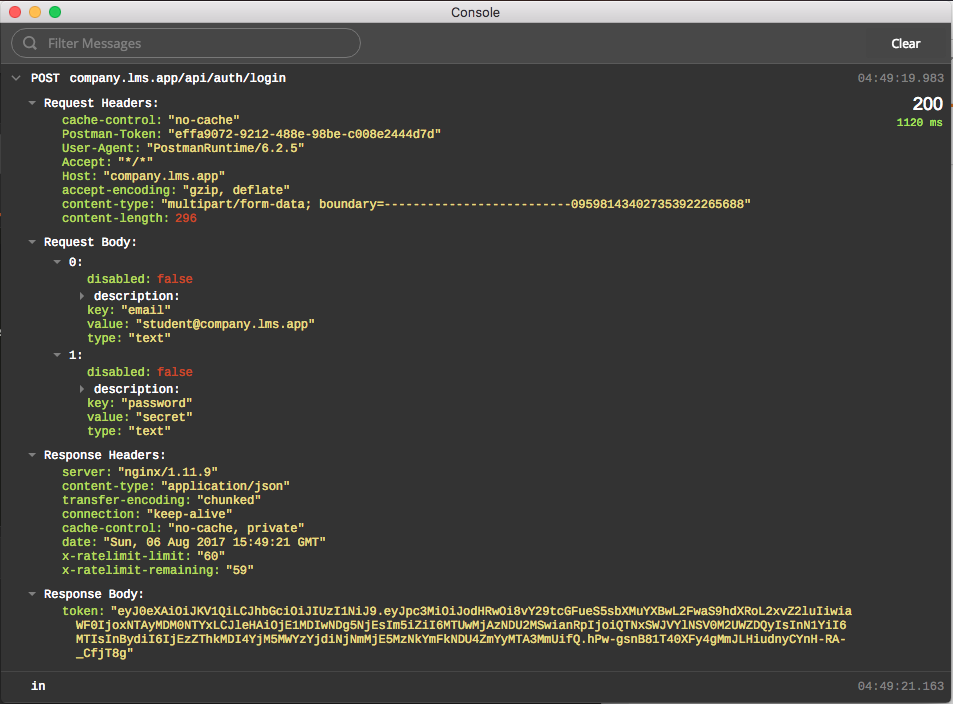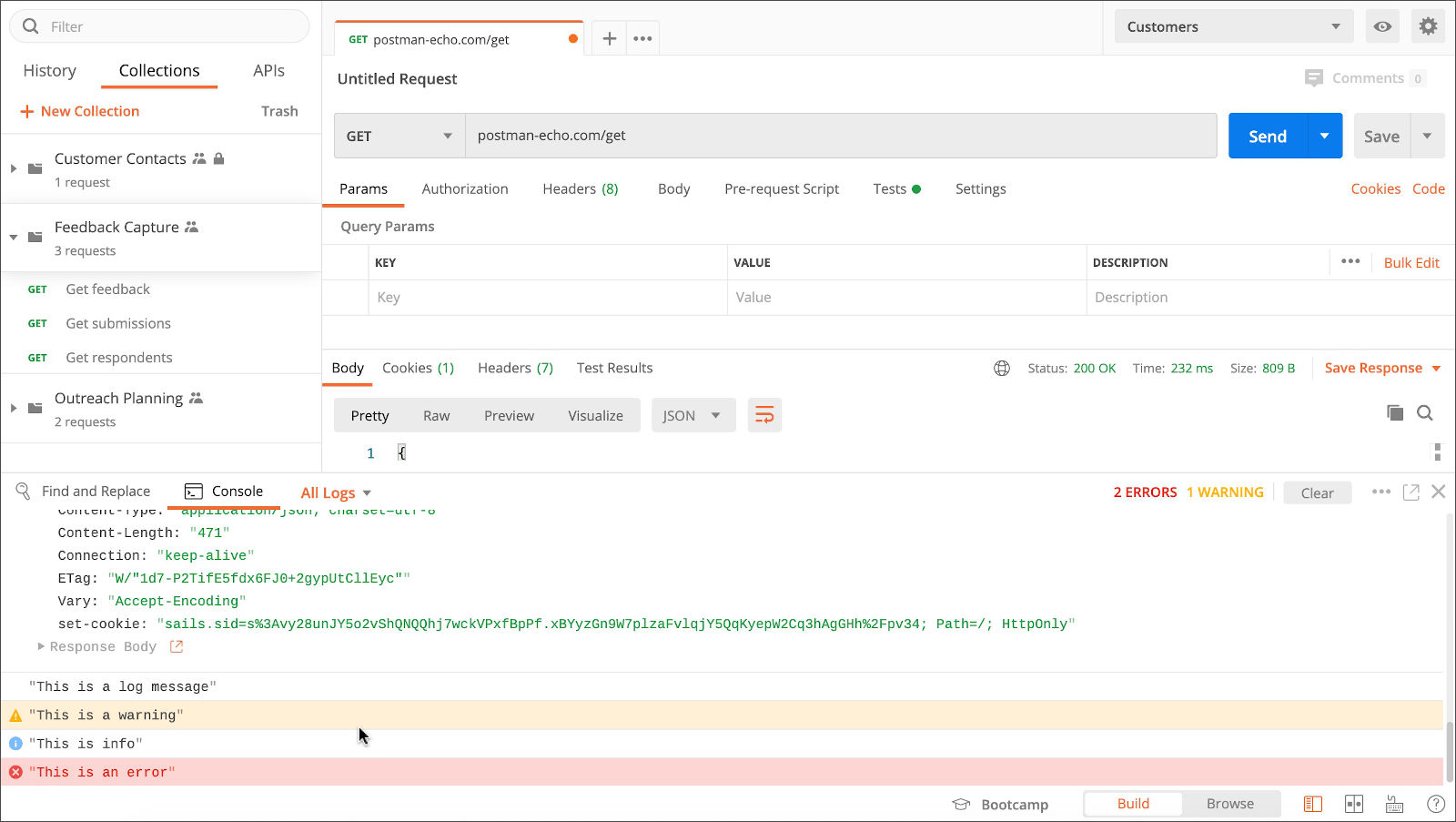

- #Postman console log to file how to
- #Postman console log to file code
- #Postman console log to file mac

This line populates the responseClone variable with a clone of the response received from the server.Ī second function argument is passed to the then() function that follows the response.json() call. Cloning the response to responseClone provides two copies of the response body to work with one in the original response to use with response.json() and another to use with responseClone.text() if response.json() fails. When response.json() is called the body of the original response is read, which means it cannot be read again when handling the JSON parse error. Here's an explanation of each line with a numbered comment:Ī responseClone variable is required to hold a clone of the response object because the body of a response can only be read once. You can add a function to handle the error and display the raw text of the response body from the server and log it to the console (see notes about commented lines below): var responseClone // 1Ĭonsole.log('Error parsing JSON from response:', rejectionReason, responseClone) // 4Ĭonsole.log('Received the following instead of valid JSON:', bodyText) // 6 In this case the error is thrown when response.json() tries to run and fails to parse the data from the server as JSON.
#Postman console log to file code
Use this approach if your code looks something like this: fetch('')

To do this you need to log the data you're trying to parse to the console.

To fix this error you need to figure out why you're getting HTML (or something else) instead of the JSON you expected. Valid JSON cannot begin with a < character, so the JSON parser knows immediately the data isn't valid JSON and produces one of the error messages mentioned above. But even if I disable logging of my own statements, it still writes the stuff like:Įtc, and that seems to take some time to.This guide will help to fix Synta圎rror: Unexpected token or ) instead of JSON. I have even started wrapping all my console.log statements within a debug-check, and then have flag in the globals file to tell if it should log to file or not. Even hiding the network logs (In Postman Console) does not seem to affect this for the better. Memory after the tests are done (but Postman still using CPU):įor a test that ran for approximately 5 minutes, It takes at least another 15-30 minutes before it is done logging all the requests (With console.log) to file. I only need them for debugging purposes, which is why I would like to have this feature. Very often while executing the tests, I never look at these logs. (1-2 seconds to switch between two request-tabs)Īfter the requests are done, I would expect that cpu would/should drop to around 0% cpu again, but that is not the case:Īnd the only thing I can tell that Postman is doing at this time is write to Postman Console / log. Not that high at all, but changing between tabs in postman is really sluggish now. Running a collection with only 11 requests (but with some being ran several times until an event has been indexed in the system under test), with 10 iterasions.
#Postman console log to file mac
(Transition from Linux to Mac was extreme with regards to how much faster Postman feels on Mac compared to on Linux by the way) Postman is responsive and working as it expected. Restarting Postman v8.0.4, cpu is at around 0% CPU: But kind of new to mac, so using Activity Monitor and timing manually.
#Postman console log to file how to
Right, tried to figure out how to get a good log of this.


 0 kommentar(er)
0 kommentar(er)
